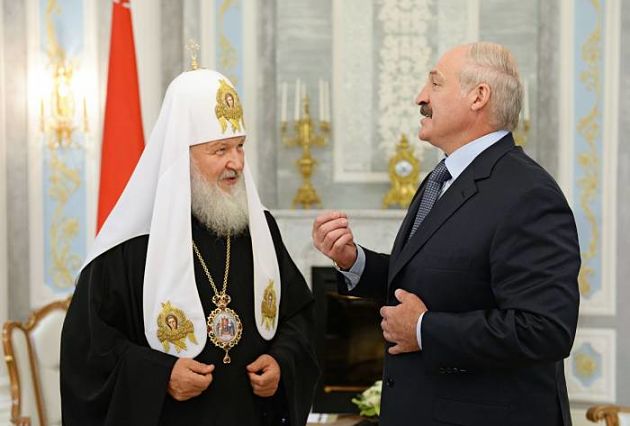Although the initial reason for writing this article was the attitude of various Christian churches toward the events in Belarus, let’s start with the internal Muslim situation. The leadership of the Council of Muftis of Russia, represented by Damir Mukhetdinov, continues to hit rock bottom, even though it seems that it has long since been reached in this structure’s doomed struggle for the role of a monopolistic “mother-Muslim church” (https://golosislama.com/news.php?id=38933). According to the website of the Spiritual Administration of Muslims of the Ivanovo region, which has withdrawn from the jurisdiction of the Council of Muftis of Russia, Mukhetdinov met with a “representative of the internal affairs agencies” in order to regain control over it or hinder its activities. It is reported that during this meeting Mukhetdinov expressed his concern that without strict control by the Council of Muftis of Russia, radical extremist Islamic movements could find their place and develop in the Ivanovo region.
And now let’s move on to Belarus, where the once popular Alexander Lukashenko, clinging to power, is turning into a Latin American or Central Asian-style dictator, whose thugs brutally attack not only demonstrators, but also journalists, random passers-by, and now even shoot at the windows from which protest slogans are being shouted. In a situation where almost no one in Belarus believes in the election results, in which Lukashenko is said to have won 80%, most likely given to the opposition candidate, one of the first to congratulate him on his victory was the Russian Orthodox Church through its leader Kirill Gundyaev. Gundyaev “warmly congratulated” Lukashenko on the “held elections”, noted the “fruitful cooperation” between the Belarusian authorities and the local branch of the Russian Orthodox Church (the Belarusian Exarchate), and wished Lukashenko “strength, courage, generous divine help and blessed success in his further service in the high and responsible post of President of the Republic of Belarus”.
And now let’s compare this with the reaction of another major denomination in Belarus – the Catholic Church. The head of its Belarusian branch, Metropolitan Tadeusz Kondrusiewicz, called on the country’s authorities and the opposition to sit down for negotiations and resolve the unfolding civil conflict peacefully. “At this decisive moment in our history, in the name of the God of infinite mercy, love and peace, I appeal to all sides of the conflict to stop the violence. Let your hands, created for peaceful work and fraternal greetings, lift neither weapons nor stones. Let the power of arguments based on dialogue, truth and mutual love prevail instead of the argument of violence,” his statement said. In the city of Zhodino, Catholic priests even joined the ranks of the demonstrators to protect them from OMON beatings.
And now let’s ask the question: are there no Orthodox among the demonstrators? Aren’t they the flock of Patriarch Kirill? So why doesn’t he try to protect them, at least by calling for reconciliation between the opposing sides, as the Catholic Metropolitan Kondrusiewicz does? And the answer to these questions is simple and obvious – it is because the Russian Orthodox Church, in order to gain access to power and the opportunities it provides, has completely merged with it and turned into its religious subdivision. This was not the case even in the early 1990s, when the former Patriarch Alexy, in a similar situation in Russia, called for reconciliation between the opposing sides.
So should we be surprised if tomorrow millions of Belarusians begin to turn away from the Russian Orthodox Church and turn to the Catholic Church, which has stood up for them? And who will be to blame for this from the point of view of the Russian Orthodox Church – the intrigues of the Vatican or its own policy?
But this whole story is also instructive for Muslims. True religious authority comes not from access to power, servitude to it, or even informing on opponents, but from fidelity to one’s religious principles and popularity among the people.

